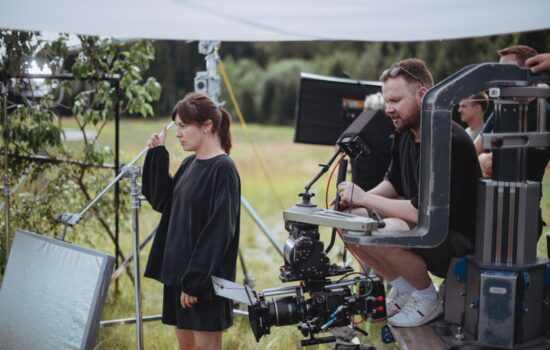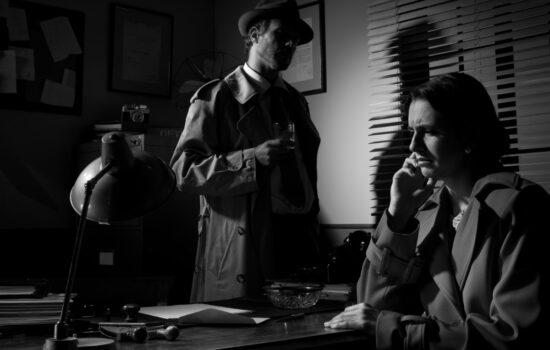Location Manager
Career Overview
The Location Manager finds, secures and supervises locations for a film, TV, or commercial production. They submit permits, negotiate rates, coordinate parking, trash removal, and navigate any required police activity.
Alternate Titles
Location Supervisor, Locations
Avg. Salary
$3,000 per week1

How To Become a Location Manager
People also ask
- What does the Location Manager do?
- Is it hard to become a Location Manager?
- What experience do you need to be a Location Manager?
- How does a location manager go about scouting and selecting suitable filming locations?
- How does a location manager balance the practicality of a particular location with the creative vision of the director?
- What are some of the specific budgetary parameters of Location Managers?
Career Description
The Location Manager oversees all locations for entertainment productions. They submit all permits, deal with negotiating rates for locations and make sure that both the space and the film production are respected.
They also have insurance responsibilities and must return the location to its original condition. They handle parking and trash removal. Coordinating police activity is part of the job, too, as is making sure that if an Actor is dressed as an Officer that the police are aware and if a road needs to be closed, it is.
Alex Banderas, a veteran Location Manager who regularly works on Netflix shows and independent films explains, “The way I look at it is, we take pics of location before we get in and when production leaves, the space should look the exact same way. If anything happens then it’s our job to contact a Contractor, get quotes and repair the space.”
“We work with the Line Producer to file insurance claims and make sure repair work is done correctly. When hired to work out of state, we coordinate with the city and Local Scouts to take photos and find the right locations for the shoot.”
The Location Manager is in charge of a production’s locations, which is a big deal now that more and more film productions are shooting on location versus inside a studio.
What does the Location Manager do?
The Location Manager on a film must handle and coordinate all needs pertaining to a location used for the filming of a movie. This means making sure the cast and crew know where that location is and have easy access to it. It also means addressing any other issues that may require attention, such as parking permits, space for trucks and other vehicles, and the management of noise levels at that location.
Salary
Location Managers employed by film studios earn approximately $3,000 per week.
The Location Manager is a freelance position so every job pays differently. Commercials often pay more, while narrative work can have lower rates. What a job requires will also affect the rate. It’s one thing to simply negotiate a deal for a production company to shoot at a spot and another to be on set, get signatures from citizens in the area, secure ten locations and clean up when a part of the production leaves a big mess.
Banderas states, “The lowest rate I’ve ever taken is $350 dollars per day and the most I’ve ever made is $1,100. The average is $750 and $50 for a kit fee. The Location Manager gets reimbursed for mileage if they leave the state.” The better network a Location Manager develops of places to shoot and people they know, the more likely it is they’ll receive a higher wage.
What are some of the specific budgetary parameters of Location Managers?
Location Managers have a particular set of budgetary parameters that they need to adhere to. Here are a few of them…
- Scouting
- Permits And Regulations
- Insurance
Finding appropriate and suitable locations is the number one priority of a location manager. There are often multiple fees involved with this action. Handling costs for transportation and other accommodations all fall under this purview.
Securing permits, covering location fees, and handling all location-based costs also need to be taken into consideration. A production that hasn’t paid the proper fees and lacks necessary documentation runs the risk of getting shut down.
All productions (and the departments within) need insurance coverage to protect against unforeseen occurrences, such as accidents and/or damages. Unfortunately, there’s just no getting around this one.
Hey, what do you think about trying our new Film Career HelperFilm Career Helper really quick? It’s totally free and could help get your career moving fast! Give it a try. It’s totally free and you have nothing to lose.
Career Outlook
Since a Location Manager works as a freelancer there are no set hours. Their work doesn’t just consist of being on set but also supervising load-in and wrap out. All of this can happen on any day, at any time.
Banderas explains, “The best answer is a Location Manager’s hours are dependent on production. It could be 7 pm to 7 am or any other sort of time. This can make it tough to have a family.”
Individuals who want to get into location management need to understand that it requires a lot of work, which can put a strain on personal relationships. Jobs also come in at the last minute so it’s best to have a flexible life schedule.
The person Location Managers collaborate with onset most often is the 1st Assistant Director because they want the shoot to run smoothly, which can only happen if the location is respected. They also deal with the Line Producer to coordinate budget and schedule when space will be rented. All permit responsibility will be shared with the Line Producer as well.
Is it hard to become a Location Manager?
The Location Manager has to coordinate with multiple people during filming and also address any number of issues that come up in relation to a location. They must be calm and collected even during stressful times and be up to the task of being the person others look to when a location-specific problem arises. It takes a great deal of problem-solving, coordinating, and multi-tasking to become a Location Manager.
How does a location manager go about scouting and selecting suitable filming locations?
Location managers need to be very judicious in how they select suitable filming areas. Time and money are typically working against them so their decisions need to be well-informed and executed so as to best benefit production. Often, the process involves a combination of logistics, attention to detail, and some creativity. There are a few steps to take to ensure they get their tasks done properly…
- Know The Script
- Collaborate
- Consider The Budget
- Take Pictures
- Build a Database
Beyond just reading the screenplay to get a feel for the material, location managers should have an inherent understanding of the key requirements for each of the film’s locations. Further, they should consider if there is anything unique or standout about the locale they should be looking out for.
Specifically with the director, production designer, and director of photography. It’s crucial that these departments be aligned on the advantages, disadvantages, parameters, and characteristics of the chosen location. Location managers need to create agendas and set meetings so all the appropriate departments can be in alignment.
While some locations may be perfect in terms of aesthetic, appeal and/or locale, it’s also important for location managers to keep things like permit costs, location fees, and other hidden expenses that may arise from any specific location.
Take a lot of snaps of the location. Location managers need to be able to fully convey the area they’ve found before getting a commitment from the rest of the production team to shoot there. The best way to accomplish this is by providing as much thorough visual reference as possible.
Creating a database of potential locations could prove to be invaluable in terms of picking the best place to shoot. The database should be as detailed as possible, incorporating things like size of the location, accessibility, overall locale, and visual references.
Career Path
A Location Manager networks with Producers and the individuals who own locations. It’s their job to have a Rolodex of places for people to film. The more options they have, or better reputation they’ve got for negotiating and finding spaces, then the more often a Location Manager will be hired.
Banderas explains, “Locations is one of those weird things. The goal is to get into the union for career stability. However, people still make a lot of money on non-union jobs.
“The way I started is I met a Location Manager and helped him out on a commercial. He brought me onto another job and slowly my network grew.” Becoming a Location Manager requires getting to know people. This can begin by meeting individuals in town who own properties and then shadowing a Location Manager to meet Producers.
Getting started as a Location Manager can be difficult. Very rarely do people want to take a chance on someone who doesn’t have any experience.
Banderas recommends, “It’s going to be unpaid, but go on mandy.com. Just get some experience under your belt. Take on a free project. Put your name out there. Put it on your resume and say, ‘hey I worked on this’. This will lead to paid work on Mandy. It’s also important to network socially. Location Managers take care of each other.”
The more a person can get their name out into the world, the more likely they’ll be to land an opportunity. This can come from taking on unpaid work or apprenticing with a more experienced Location Manager to develop connections
- Get in touch with a Locations Manager for mentorship.
- Move to Los Angeles or a major film production city to break into the industry.
- Try to get Production Assistant work. This will show how set is run.
- Work with a real estate company.
How does a location manager balance the practicality of a particular location with the creative vision of the director?
Herein lies one of the highwire acts of a location manager’s role. They need to have an inherent understanding of the script and the director’s vision but also be able to deliver a location that matches both that and the production’s budgetary confinements. Some ways to achieve this are…
- Collaborative Script Analysis
- Pre-Visualization
- Financial Concerns
- Be Flexible
Working with the director on a location-by-location basis will put everyone on the same page in terms of locking down a location that suits both the creative vision of the movie and the practicalities of making it. Communication is key here, as the director and location manager will need to find a common ground and agree upon what the script is calling for.
Virtual reality tools can often come in handy to showcase the look of a specific locale. If digital means aren’t available, concept art and storyboards can be just as effective in terms of communicating how a chosen location can be modified to meet the creative needs of the film.
Location Managers need to be forthright and honest about the possible budgetary constraints for any given location. The best solution to this issue is to involve the relevant departments and decide as a group what’s feasible for the production to move forward.
Like the majority of departments, location managers need to remain flexible to the creative process. Scripts and ideas can shift and fluctuate and it’s important to roll with the changes as they manifest.
Experience & Skills
Banderas recommends, “Learn real estate. Intern at a real estate agency and discover how to get a hold of people, how to talk to them. A luxury real estate firm would be ideal. Some location contacts could be created, but for the most part, it’s the practice of dealing with people.”
Location managing is a people game. It’s about coordinating with production and the owner of a location so they’re on the same page. Often, if someone hasn’t rented their property before then they’ll be on a different page than production is on what will happen. This can be as simple as people wearing shoes inside a house.
Therefore, it’s the Location Manager’s job to make sure that no friction occurs. In the example of the shoes, at the end of the day, it is his or her job to ensure the property looks as if shoes were never worn inside, even if they were.
Friendliness is key to being a Location Manager. However, he or she can’t be a pushover.
“I’m fair. I hear people out. I’m not a jerk but I still respect the space. The Location Manager needs to know if someone is doing something wrong to a location and be able to say ‘stop doing that’ in a kind tone, even if it’s a celebrity,” says Banderas.
This can be a tricky scenario because the property owner deserves to have their space returned to them as they left it but they can sometimes be overly protective. Also, the film production feels like they are paying so much money that they should be able to make the movie that they’re trying to create without any hindrance.
Both are correct in their own way and it’s up to the Location Manager to make sure that everyone leaves happy. A person who is good at negotiating would make a great Location Manager.
What experience do you need to be a Location Manager?
Location Manager is not an entry-level job. In addition to have general filmmaking knowledge, it requires ample and effective communication with others and being able to troubleshoot issues big and small. Often Location Managers start out as Location Assistants or other support staff to gain the experience necessary to rise to the position of Location Manager.
Education & Training
There is no academic program that teaches people how to become a Location Manager. It’s a career that is developed through experience. Everyone who works in this role comes to it in their own way. Banderas says, “I came straight out of the military, didn’t even know I wanted to work in Locations. A lot of people have a degree in geography. The most important thing is to get to know people and be nice.”
If someone learns how to read contracts, take photos, drive a car and interact with people professionally, then they will have many of the foundational skills required for working as a Location Manager.
Additional Resources
Banderas says, “There’s really nothing out there to learn about location management. That’s why this [website] is great. You could check out the Teamsters Union but that won’t explain the job. It’s really all about getting to know people.”
If someone wanted to they could check out some location websites to see the types of property in the area. This could give them an idea of how to showcase their catalog of properties later in their career. The most important aspect, though, is getting the properties and connecting to filmmakers.
Often, working on a job will require a Location Manager to meet with various owners of a specific type of space. Doing this sort of work will expand their Rolodex for future projects so it isn’t as labor-intensive when it comes to booking a space in the future.
FAQ
What is the single biggest suggestion you would give to someone wanting to get into this career?
“The biggest suggestion I recommend is to not bullshit people, especially Location Managers that you’re trying to take on as a mentor. Don’t say you can do something that’s impossible to do. Overselling is a way of burning bridges. Say you really want to do it and ‘please help me learn’ and lots of locations people will help.
“Don’t just ask for work. Explain why you want to do locations because it can be a nightmare. There is a lot of creativity that goes into locations, from reading a script, envisioning different places and putting in your own creative flow. So, it’s important to be where you’re at and be honest. Also, never be late. Locations should be the first one there and the last to leave.”
What’s the #1 mistake people make when trying to get into this career?
“The biggest mistake amateurs make is lying about what they can do with a budget to book a job. If a Location Manager over promises, they’re going to have to go back to production and ask for more money, which will look bad.
“They’ve got to be honest upfront so the Producers can budget accordingly. Say what is possible to be done and where they need to devote extra funds. It can be a tough conversation but it’s necessary. Sometimes the opportunity will leave because of it but that’s usually for the best because there would have been major problems with that type of production.”
What is the question people should ask about this career but rarely do?
“What is your worth?
“A lot of people don’t set a base rate for themselves and are afraid to talk about money. There are a lot of bad people out there who will take advantage of labor. They don’t consider hours worked, just what they want. Therefore, it’s important to figure out what the rate is going to be before getting started or committing to a job.
“If someone is reluctant to talk about wages then it is probably a job not worth doing unless you’re trying to gain experience. This is a dream job but the way to make it real and sustainable is to figure out your worth and make sure you get it. That’s the only way to survive.”
What is one thing I should have asked which I didn’t?
“How realistic is it that someone is going to make it in this industry?
“There’s time when I don’t have work. Must remember to save money for those lulls. The pendulum always swings back the other way and it can feel like it’s always going to be like that. Remember to manage your own expectations.
“There’s only so much work and it isn’t very glamorous. Most people can’t take it and there’s a very low probability of making a successful living. Many people have been doing it for a long time so often Location Managers will run into each other repeatedly through the years. Don’t crush your own dream when times are slow and be prepared for failure. It takes tenacity to survive.”
If you could describe in one word what makes you successful, what would it be?
“Determination.”
Sources

Alex Banderas
Alex Banderas is a veteran Location Manager. Some of his past TV credits include Real Rob, True Nightmares, Buried in the Backyard, and Missing Time.
He has also done the films Cuck and Anonymous Killers as well as commercials for Super Bowl 31 and Armani Water. Music video credits include Dr. Dre and Drop Drop.
References
- 1Siegemund-Broka, Austin and Paul Bond. "Hollywood Salaries Revealed: Who Makes What on the Lot and on Location". The Hollywood Reporter. published: October 2, 2015. retrieved on: April 15, 2020



















